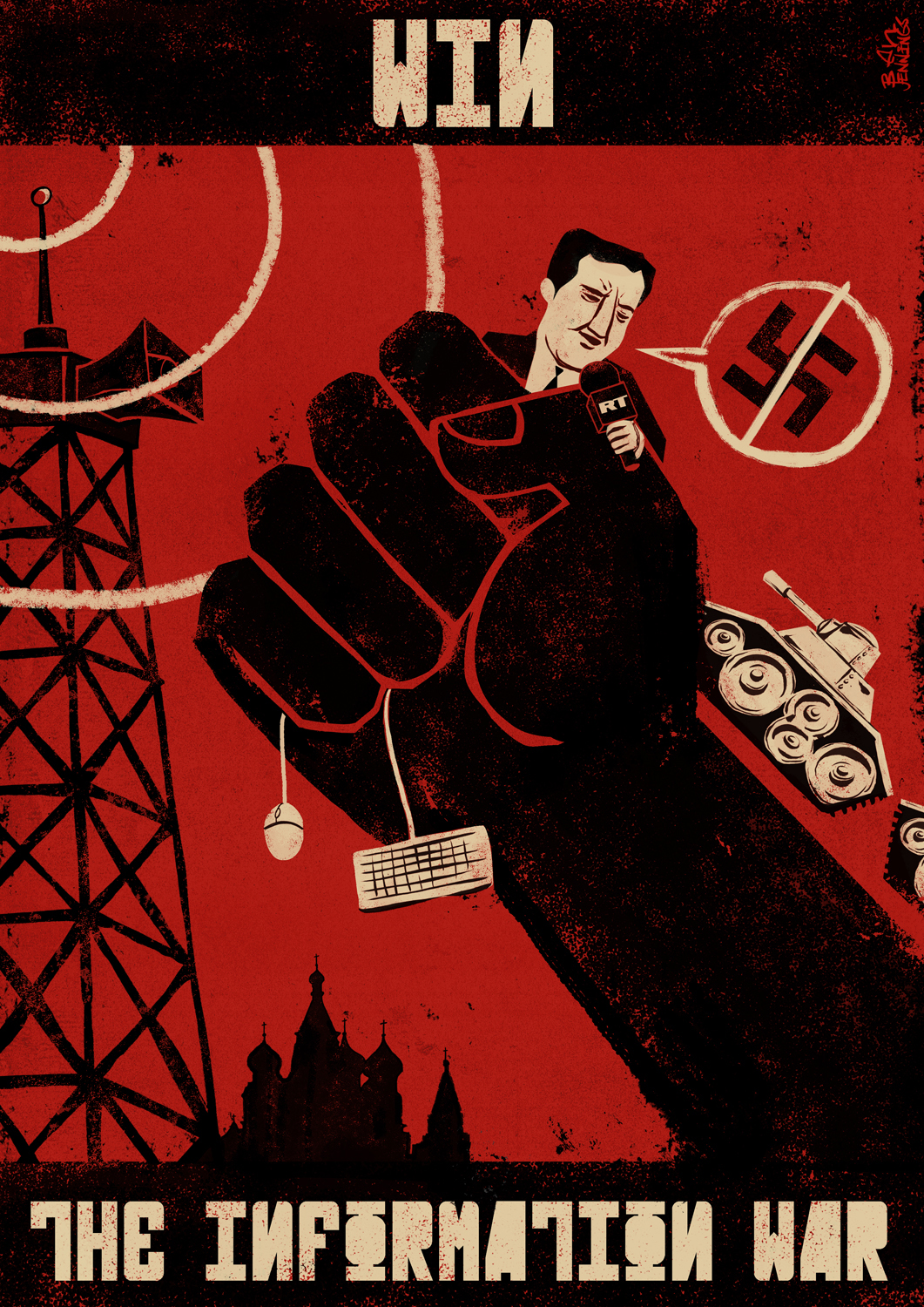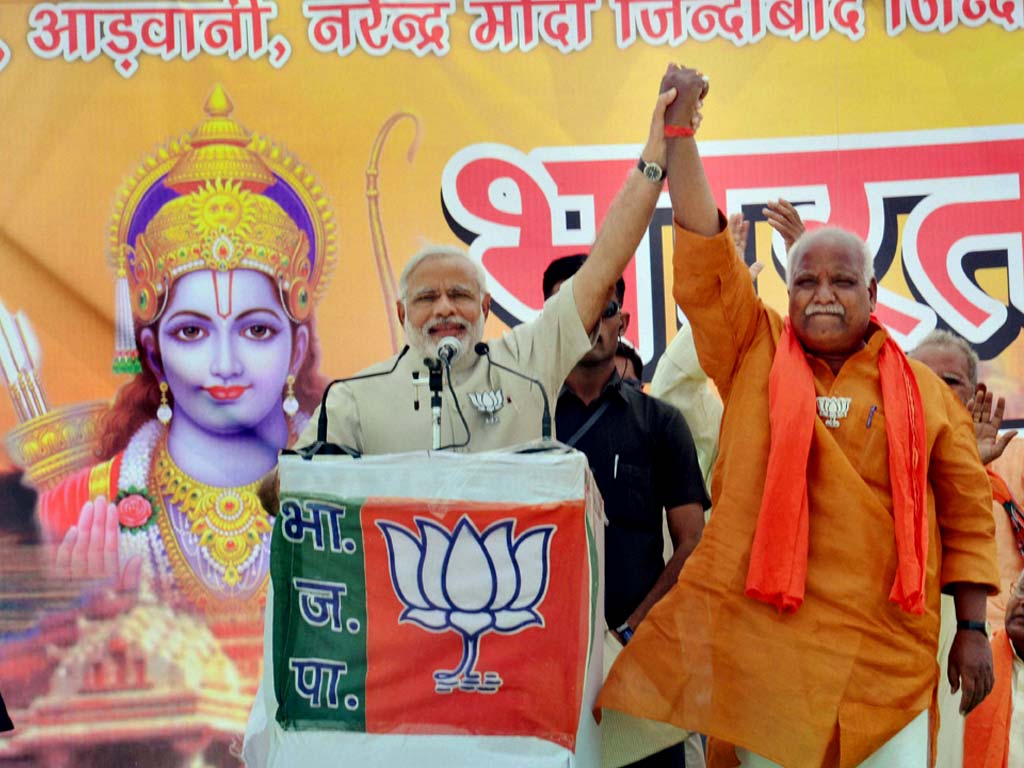16 May 2014 | News, Religion and Culture, Russia

In September last year Vladimir Putin spoke at the Valdai Conference, an autumnal landmark in the Russian political calendar. The theme was values and identity and Putin proposed a “return” to morality and spirituality, praising the Russian Orthodox Church, religious tradition and resistance to political correctness.
Fast forward to Spring 2014 – and Putin’s appeal to nostalgic morality has collided with the internet age. “Swearbots” are the latest deployment – an attempt to curtail Russian’s propensity for foul language online and save the bruised fingers of online censors, who have until recently been tasked with checking over five thousand websites “manually” for profanities each day.
But how does this square off with Russian “identity,” which Putin was so keen to discuss? Russians love swearing, as much as they love vodka or not smiling at strangers. Browsing this eyebrow raising online dictionary (optimised for non-Cyrillic readers), demonstrates quite how large the Russian profanity compendium is. As one commentator cheekily told the BBC “If they ban swearing in Russia, all technical progress will grind to a halt …Warehouses will close and the army will lose its combat readiness. For our Motherland, it will be the end.”
In an attempt to police this ocean of foul language, enter the swearbot. It’s a computer programme forecast to go live this autumn, enforcing laws passed last spring. It should automate the rooting out of blasphemous Russians, and take the pressure off the media watchdog Roskomandzor, who were wilting under the pressure of censoring so much filth.
According to a statement from Moscow’s Academy of Science the law applies to “obscene references to the male and female reproductive organs, copulation and women of loose morals, and all words derived from them.”
Although that seems fairly vague, it’s a step up from when the legislation was originally passed last April. At that point, there wasn’t a specific list of forbidden words. It took until December for the the Institute of Russian Language at the Russian Academy of Sciences to confirm four words they believed should be censored – roughly translated as “c*ck” “f*ck” “wh*re” and “c**t”.
Although it’s still not exactly clear which swear words the swearbot will be primed with, those four seem a good start.
The fines for those cussing too strongly come in at 3000 rubles ($85) for an individual, and over $500 for an organisation. The bill, having passed through the parliament’s Lower House, is expected to be fully ratified by July – at which point it will come into law.
The Kremlin also announced that public performances, including cinema, theatre and stand-up comedy, would be subject to the swearing restrictions. Again, fines are in places as well as a three month suspension of business activities for repeat offences.
A trade magazine for comics, Chortle, lamented the news – worrying that comics would feel limited.
Irish stand-up comedian Rory O’Hanlon told Chortle the new rules would “make it difficult, near impossible to perform,” adding that “on the other hand it may push comedy underground and make it more exciting.’
The private TVC TV channel found itself in controversial waters when it decided to beep out the word “hrenovina” (“bullshit”). Eldar Ryazanov called the decision “an act of idiocy”.
The Ministry of Culture is defending its new legislation. “The law is not aggressive; its only aim is to regulate this sphere, so that swearing will have its purpose,” a ministry spokesperson told the Moscow Times. “It will be up to the artistic director to decide what to do with swearing, whether to break the new law or not, we will not interfere in the process.”
With the arrival of the “swearbot” program some analysts say bloggers might be at risk, especially as a law that defines major blogs as mass media is speeding towards approval.
Bloggers are now required to register as publishing entities, in a process similar to registration for TV stations and newspapers. Commentators have warned this will have a chilling effect as bloggers will be licensed to publish, as well as having their addresses logged with the government.
This article was published on May 16, 2014 at indexoncensorship.org
16 May 2014 | Egypt, News
A chilling message sent by award-winning photojournalist Mosa’ab El Shamy via his Twitter account on Monday filled his 41,000 online followers with dread. Alerting them that his brother, reporter Abdullah El Shamy, had been “removed from his prison cell and taken to an unknown location”, Mosa’ab added that he was “still trying to find out more.”
Abdullah, who works as a journalist with the Arabic-language Al Jazeera (AJ) Misr Mubasher Channel, has been detained at Cairo’s Torah prison since August. He was arrested outside the Raba’a El Adaweya Mosque in Cairo’s eastern residential neighbourhood of Nasr City while filming the forced dispersal of a sit-in by supporters of toppled Islamist President Mohamed Morsi. At least 600 protesters were killed and thousands more were injured in a single day of violence when security forces stormed the pro-Morsi encampment on August 14 .
Mosa’ab’s Twitter post provoked an angry outcry from hundreds of internet activists who demanded that the Egyptian authorities “immediately disclose the whereabouts of the 26 year-old AJ detainee.” The fact that Abdullah has been on hunger strike since January 27–and had reportedly lost a third of his body weight–further fueled concerns over his disappearance and ailing health.
“If they can let a prisoner on hunger strike like Abdullah El Shamy just vanish in Egypt, what does Foreign Minister Fahmy’s talk of ‘due process’ really mean?” asked Jonathan Moremi, a journalist with the independent Egyptian paper Daily News Egypt.
On a recent visit to the United States, Egypt’s Foreign Minister Nabil Fahmy told US Secretary of State John Kerry that the country’s courts were “independent of the government.” He insisted that a “due process” was allowed in all court cases, leading to “fair decisions” by the judges. His statements came in response to criticism from US officials and international rights groups of an April court decision sentencing 683 Muslim Brotherhood supporters to death for their role in protests last year against the overthrow of Mohamed Morsi. Kerry called the mass death sentences a “dangerous development.” Amnesty International, meanwhile, said “the Egyptian judiciary risked becoming a part of the authorities’ repressive machinery.”
In a blog titled “Where is Abdullah El Shamy?” posted on her website Wednesday, prominent Egyptian blogger Zeinobia said that blood samples taken by Abdullah’s family had shown he was “on the verge of kidney failure.” She also reminded readers that “journalism is not a crime.”
Abdullah is one of 17 journalists currently imprisoned in Egypt and one of four detainees working for the Al Jazeera news network , according to a recent report released by the Committee for the Protection of Journalists , CPJ. Sixty five journalists have been detained since the military takeover of the country in July 2013, the CPJ report adds. Analysts say Abdullah’s situation appears to be “more serious” than that of the other three AJ journalists who have been charged with “fabricating news that harms national security” and “aiding a terror group.” Abdullah has languished in prison for nine months (four months longer than his detained colleagues) and unlike them, he has not been charged thus far. Furthermore, he works for the Al Jazeera Mubasher Misr, a network that has been accused by the Egyptian government of being “a mouthpiece for the Muslim Brotherhood”, designated by Egypt as a terrorist organization last December. The three other AJ detainees work for Mubasher Misr’s sister channel, Al Jazeera English, generally perceived by Egyptians as being “more balanced” and “fair”.
In a letter smuggled out of his prison cell at the end of January, Abdullah described the dire conditions inside Torah prison, saying he was sharing a tiny cell with 16 inmates. Announcing his decision to go on hunger strike “to send a message to intimidated journalists practicing self-censorship” and “exhort them to overcome their fear,” Abdullah expressed a defiant spirit, telling the military junta that nothing would break his will or his dignity. In a video smuggled out of prison , he held the Egyptian authorities responsible should harm befall him. ” I have repeatedly asked for medical attention but to no avail,” he says in the video.
It took a nerve-wracking two days for Mosa’ab to find his “missing” brother. In a second message posted on Twitter on Wednesday, he informed his online friends and fans that Abdullah had been moved to solitary confinement in Tora’s high security “Scorpion Prison”. Abdullah was being punished “for refusing to end his hunger strike and for attracting international attention to his plight,” Mosa’ab said.
Heba Saleh, the Financial Times’ Cairo Correspondent, who visited the three AJE detainees on Wednesday, offered another explanation for Abdullah’s disappearance. She quoted prison authorities as saying that Abdullah was being punished “for a smuggled cell phone found in his possession.”
Meanwhile, the trial of the three Al Jazeera English journalists –Australian journalist Peter Greste, Cairo Bureau Chief Mohamed Fahmy and producer Baher Mohamed–took a turn for the worse on Thursday when Lawyer Farag Fathy– the Defence Attorney representing Greste–quit the case, accusing the international news network of jeopardizing his client’s case.
In a surprise move on Thursday, Fathy announced he was withdrawing from the case, adding that Al Jazeera was using the trial for “promotional purposes.” Fathy’s decision to step down came after the Qatari-hosted news network served a Notice of Dispute against Egypt for breaching a 1999 investment treaty with Qatar, Hayden Cooper , ABC’s Middle East Correspondent reported on Thursday. In an article published online by Australia’s ABC news network, Cooper said Al Jazeera was seeking US Dollars 150 million in compensation from Egypt for losses the media outlet had incurred as a result of the closure of its offices in Cairo, the jamming of its satellites broadcasting in Egypt and the mistreatment of its journalists.
Thursday’s court session made little headway as defence lawyers complained to the judge that the prosecution had asked them to pay an exaggerated fee of 1.2 million Egyptian Pounds to review “the evidence.” Adjourning the trial until May 22, the judge urged the prosecutors to allow the lawyers access to the video footage they claim contains “evidence” against the defendants. He also asked them to state in writing their “desired price” for making the footage accessible to the lawyers.
The new developments threaten to further prolong the case that has dragged on for four and a half months. Defence lawyers and analysts fear the recent turn of events may also threaten the final outcome of the case, resulting in an unfair verdict. The four detained AJ journalists, including Abdullah El Shamy, are caught up in the middle of the Egypt-Qatar political dispute, they say, adding that the case is clearly “political” and hence there is little hope that justice will prevail. Abdullah, who has completed 100 days on hunger strike, may not live long enough to hear the verdict.
This article was posted on May 16, 2014 at indexoncensorship.org
16 May 2014 | News, Russia, Young Writers / Artists Programme
This week cartoonist Ben Jennings takes on Vladimir Putin’s information war.

15 May 2014 | India, News, Religion and Culture

Modi invoked Lord Ram while addressing a meeting in Faizabad, barely six kilometres from Ayodhya. He shared the stage with the Faizabad candidate Lalu Singh who was issued a notice by the EC for displaying religious portraits.
“The Ram- Rahim ideal and the secular ideology are often the stuff of an Indian politician’s election haberdashery, not his soul-stuff.” Justice Krishna Iyer of India’s Supreme Court was scathing in his criticism of those electoral candidates who canvass votes in the name of religion or by instigating polarisation among different religious and ethnic communities. Besides violating India elections law, they also damage the country’s secular fabric.
The law is Section 123(3) of the Representation of the People Act, which deems candidates’ or their agents’ appeal for votes on the basis of religion or religious symbols as a “corrupt practice”, and if found guilty, entails disqualification.
On May 6, while campaigning for Lalloo Singh, the Bharatiya Janata Party’s (BJP) candidate from Faizabad, Narendra Modi, with the picture of Ram, a mythological king of ancient India, revered as a god by the Hindus, adorning the background, promised to bring about “Ram Rajya” (kingdom of Ram) if voted into power. The Election Commission was quick to order an investigation for a violation of the election law as well as the Model Code of Conduct–a set of guidelines which aren’t legally binding.
As it has become de rigueur for a Hindu Right party like the BJP, bellicose arguments about violation of the fundamental rights to freedom of religion and freedom of expression were relentlessly trotted out. The truth is quite different, because the Supreme Court has held that the restriction on religious electioneering doesn’t impinge upon any such right.
When the constitutional validity of Section 123 (3) was challenged in 1954, a bench of five Supreme Court judges while upholding the provision held that it does not prevent a man from speaking and merely prescribes conditions which must be observed if he wants to enter parliament. The right to contest an election is not a common law right but a special right created by a statute and the statutory provisions have no bearing on the fundamental rights. Then when a similar challenge was mounted again in 1965, the court affirmed its earlier decision and stated that the law acted as a wedge against the secular, democratic process being vitiated by bigotry and violence. It must be mentioned that both these judgements hold ground to this day.
Going back to Modi’s speech, take a look at the photograph, and some more facts. “Ram Rajya”, which the BJP so desperately tried to pass off as a moniker for good governance, is an exclusive Hindu term, and no one professing any other faith would ever use that expression. The setting in which the speech was delivered makes Modi’s actions all the more egregious. He was speaking at Faizabad in Uttar Pradesh, which is only a stone’s throw away from Ayodhya, which has attained permanent notoriety for the site of the demolition of the Babri Mosque in 1992 by hordes of militant Hindus swearing fanatical allegiance to the BJP and its associated parties. In fact 6 December 1992 marks that watershed moment when communalism became an inalienable and vicious part of Indian politics. Things have only slid downhill from there, and who can forget the carnage in Gujarat in 2002 (under Narendra Modi’s watch)?
And the fact that Lalloo Singh is one of those arraigned as accused for razing the mosque to the ground leaves no one in any doubt as to Modi’s real agenda- to whip up Hindu communal passions and garner as many votes as possible.
Modi’s increasingly strident bigotry has bared its fangs open in the last lap of the election campaign. Only on May 5, he tried to charm his Uttar Pradesh supporters by thundering that only those who worship Durga–a Hindu goddess–are true Indians, and all Muslim migrants will be deported once he came to power.
It remains a mystery and one of grave consternation as to why the Election Commission finally went easy and took no action. But a fitting reply to the last Modi apologist would be -the promise of building a Ram temple over the pulverized mosque occupies pride of place in the BJP’s election manifesto.
This article was posted on May 15, 2014 at indexoncensorship.org



